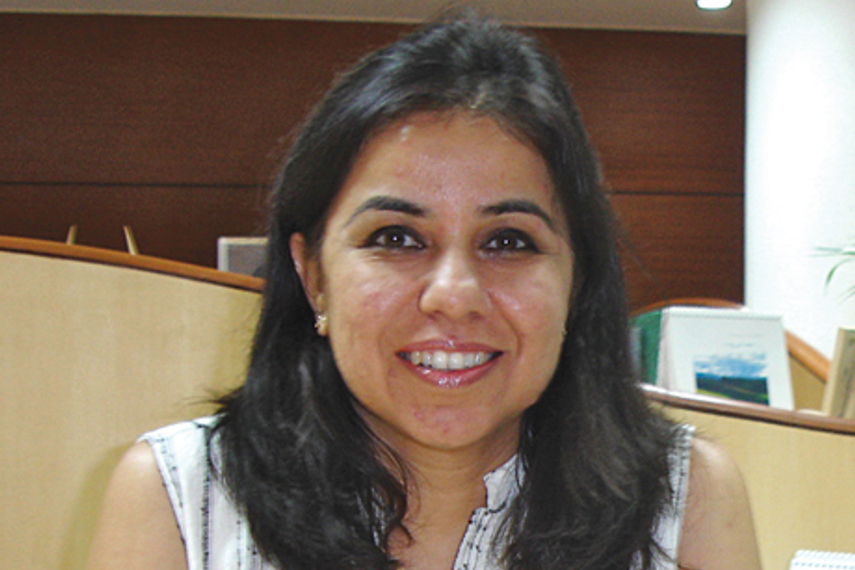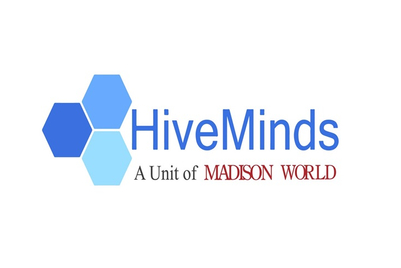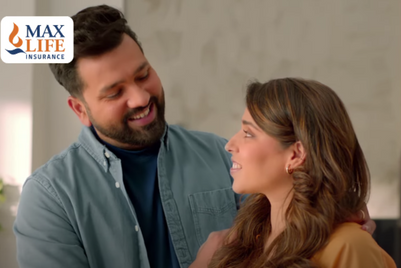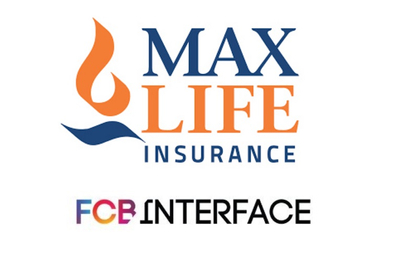
Max is in a unique place, with healthcare, insurance and corporate brand play. How does the leverage of the corporate umbrella brand for insurance?
The three large businesses we have are healthcare (hospitals), health insurance and life insurance. Currently, life insurance is the largest business. We are a mature player as far as private life insurance goes; we were among the earliest. The health insurance business Max Bupa is two and a half years old and is now growing in scale. The third business, healthcare, is very North-centric.
So as far as this group is concerned, people know us as parts, not as sum of the parts because of the different vintages of these businesses. We said that the time has come to start creating a group entity.
To leverage our life insurance business for Max Bupa, for instance, people first need to know that they are part of the same group. And that this is now a large group with different business interests, but yet unified in some way because these are all service businesses, about the business of life. Even some of the other businesses that are currently at an incubation stage, like Antara, which is for senior (citizens) living, are about business of life.
How does quality differentiation trickle down to the consumer, in this category? Isn’t quality highly intangible, especially with no product differentiation?
In the business of insurance, advertising is just the door opener. If an agent is calling a customer, is the customer willing to meet you? That’s as far as advertising goes. Whether he buys or not and how much are we able to influence the purchases are completely driven by who is sitting across the table and what he is saying to you.
Consumers are not buying products in insurance. In fact, they don’t even know what products they are buying into. They are buying into the advice.
In most categories, you create a pull for the product. Here, people don’t even differentiate one product from the other. There is very little understanding, awareness or even interest to know more. People just know the product as a maths product - you know, kitna daaloge, kitna milega (How much will you pay, how much will you get back?).
What they buy into finally is who they should buy from: Is the person trustworthy, can I actually believe him? Because, these are long-term products and there is no immediate gratification. You have to trust the person to believe the promise at the time of sale. When he tells you something is going to happen on maturity, he is making a promise in the future.
Can you explain the positioning of Max Life (Sachche Advisors) and its differentiation?
The starting point was that enough people know us - they know that we are a good quality business player. So the task was differentiation - what it is that we want to be known for. And we had from experience zeroed in on what consumers are finally buying into.
Then we started looking at data to find if we had a head start in this area. It’s very easy to say we want to differentiate. But you need to have the credibility on this kind of proposition. Why would a consumer start believing you?
When we looked at four to five years of data from brand tracks and other studies, one thing that was pretty clear is: ‘Max Life has got professional advisors’. When compared to some of our key competitors, we were way ahead on this front.
Even in our customer satisfactions scores, professional advice is something our advisors are known for, because for years we had been following the standard process of saying ‘Let’s do need-based selling’. So we just capitalised on it and communicated it now.
Use of children in insurance communication has been happening throughout. In your case, with properties like igenius. How important is that as a factor – the engagement of children and parents through children?
The biggest category of insurance buyers is savings products buyers, not so much protection products. And all data and all research seem to indicate that Indians are saving for their children.
We were the first ones to spot this trend of biggest need for savings being the child need. We realised we have to speak to parents. Then came creating a child platform so that we can engage with the TG without having to hard sell and push our products. That’s how igenius was born. It’s a fairly big investment; it’s corporate India’s largest private scholarship programme.
Now, this whole thing of also saving for your own self and for your own retirement as a trend are picking up.
How have the media plans changed for Max Life?
The role of digital has enhanced almost 10 times because 66 per cent of the people, even if they are buying offline today, are comparing and searching online. Earlier, that information was not available.
Even if they had to educate themselves and get their awareness going on the product, they had to rely on the agent to tell them. They would call three agents to compare!
Comparisons are available online. Though it is difficult to compare because these are all future projections of maturity benefits, people are still searching. If they are not searching for comparisons, they are searching for at least positive word of mouth.
So has something else gone down?
We used to do a lot of outdoor earlier. We have scaled down a lot in terms of visibility in outdoor and static branding. A lot of that money has got diverted into digital. This category in any case was not too heavily dependent on print; we were doing it tactically. Print has reduced substantially now. Money from print and outdoor has moved into activation engagement ideas like igenius and digital.
And programmes like igenius have a Facebook community of more than three lakh members, a parenting community which keeps interacting with each other on topics which we keep suggesting.
Within online and the growing share, what is search looking like?
It’s growing phenomenally. The more the players, the more the results when people are searching. ‘Child plan’ must be the biggest search term today. Everybody has three child plans; imagine 24 players with three child plans each. Search has been taken to a different level of science altogether in this category. The more obtuse the category, the more opaque, the smarter the search has to be.
So how many digital agencies do you have working with you on this? Three-four?
Yes. I am in the process of consolidation. We currently have almost seven agencies working for us.
Seven in digital alone?
Yes. We have more digital agencies than offline agencies. Because that is the biggest challenge. There is a search specialist. There is a website specialist. There is a CRM specialist. There is a creative specialist. There is a media in digital. Despite my mandate to consolidate to not more than two, my team has come back to me throwing up their hands, saying, “Please allow us four at least - that’s as far as I can consolidate.”
Take digital analytics. Now, I haven’t even used that service. If I bring them on board, that would be my eighth digital agency.
Your move from auto (GM) to insurance was much talked about. Do you miss the excitement of the auto space?
I actually have no regrets to be honest. Absolutely no regrets because this is such a rich and wide category purely as a marketer. This is a business of life. And even if I keep Max Vijay aside, the way we saw the core business of life insurance, I have joined the business of life. For me this is about the biggest and the most important milestones in a human being’s life - whether it is death, birth, retirement, your child is going abroad to study… I mean, we live for those moments. The minute I say this is a business of life and not a finance business, it is a rich and a right category with brilliant insights.
Take for example, pension - we are doing a new campaign for it. When you are young, you have all the money because you are earning, but you have no time to enjoy the money. When you get old, the biggest problem that happens (and it came from my father’s retirement), is that you have all the time in the world. If you haven’t made your financial planning well, you will really find the time hanging on you. But if you are well to do, you can really use the time well. So that is the insight, which came of out this thing. And this is a real life insight; a deep insight from real life which impacts every normal human being.
I always saw and still continue to see this category as one which is a very, very emotional - connected with the best milestones of life.
Do you see more insights mining here than in the auto sector?
A hundred per cent. No comparison. Auto sector in that way is a little more unidimensional, because you know that cars are marked to your life stages. I start off, I’ll go with a small car. It is important then to just be mobile and tell people ‘I own a car’. You start doing a little well in life, then you want to own a car with a boot. So a car is a little more linear that way, because your life stages are marked to the kind of owner that you have. Right up to a Mercedes from a Maruti 800, you can mark your life stages with your ownership.
To some extent insurance too is life stage-linked, right?
Insurance is life stage-linked, but at any given life stage, there are multiple needs - because these are multiple needs that it fulfills unlike auto which fulfils one need of imagery of self projection as a certain person. This has got multiple needs.
Because it tackles multiple needs, it is a little more varied. An average person owns five and a half policies in his lifetime. An average person at any given point of time owns only one car.
And the other thing is if you look at cars, there is a lot of value you can see the moment the customer brings out the car from the showroom. He starts driving on the road, people will look at him. Here, you buy a life insurance and don’t go around publicising saying you’ve got Rs 5 crore worth of life insurance.
In fact you tend to forget. And you want to forget, by the way. You want to forget because there is a premium coming up next time. It is like ‘loan EMI ane wala hain’. So I don’t want to deny the fact. And of course, auto is very glamorous. It has its own advantages. It is exciting. And we did some great campaigns. We have won the NDTV marketer of the year, NDTV campaign of the year, we won various awards, did some great work, dealt with film stars and celebrities and stuff like that. So it brings its own set of glamour.
‘Agencies should be awarded for creative work even if the work was not used to build brands’. Yes or no?
No.
There are marketers saying ‘yes’...
No, I will not agree to it. It just can’t be an end in itself. It is not just about the creative work. Anything that is just the means and an end in itself doesn’t work for me. It has to serve a certain purpose and a larger cause in life. Whatever you do, it needs to have a purpose. The purpose can’t be ‘I want to win awards’. Except for giving me the glory, individual glory, what did it do? What did they do for the person standing next to me?






.jpeg&h=268&w=401&q=100&v=20250320&c=1)
.png&h=268&w=401&q=100&v=20250320&c=1)
.png&h=268&w=401&q=100&v=20250320&c=1)

